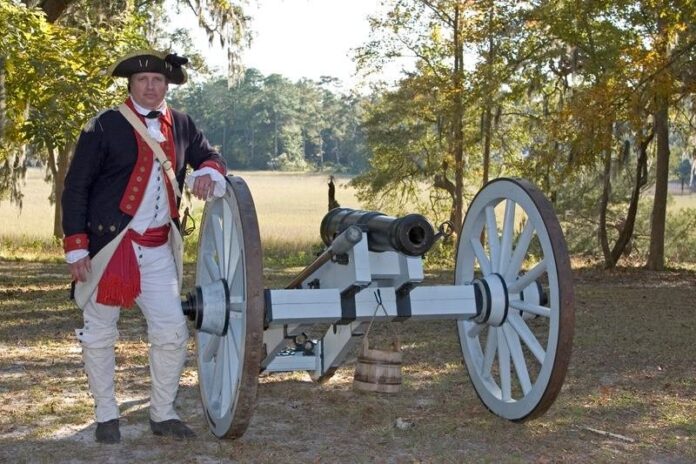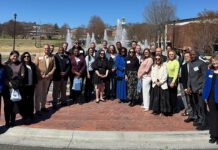
Super Museum Sunday is February 9. On Super Museum Sunday, history springs to life across Georgia as numerous museums, historic sites, and cultural institutions open their doors for free.
This event is organized by the Georgia Historical Society and is an annual event offering visitors the chance to explore the rich and diverse history of Georgia, from colonial forts and Civil War battlefields to Native American heritage sites and presidential homes.
Free admission
Nearly 100 art, science, and history museums, historic sites, and other points of interest across Georgia will offer free admission during the Georgia History Festival’s Super Museum Sunday.
The Folk Pottery Museum of Northeast Georgia at the Sautee Nacoochee Center in White County is participating. Between 2 p.m. and 4 p.m. on Sunday, Daniel Bollinger will present a pottery demonstration.
Georgia’s State Historic Sites are among the highlights of the event, providing free admission on Feb. 9. Visitors can enjoy interactive exhibits, guided tours, and hands-on activities designed to engage all ages. Whether you’re learning about the Geechee Gullah ring shout, interpreting the Cherokee Nation’s first newspaper, admiring President Franklin D. Roosevelt’s hand-controlled roadster, or walking the same ground as Revolutionary War soldiers, Super Museum Sunday is the ideal opportunity to delve into Georgia’s past and create new memories.
Georgia’s State Historic Sites by Category
Revolutionary War & Colonial Georgia
Fort King George State Historic Site, Darien
From 1721 to 1736, this fort served as the southern outpost of the British Empire in North America. Explore the reconstructed cypress blockhouse, the earthen fort and tabby ruins, visit the museum, and take a hike along a nature trail.
Fort Morris State Historic Site, Midway
This earthen fort on the Medway River was a key defensive position during the Revolutionary War and the War of 1812. The museum offers insights into the colonial port of Sunbury, and visitors can enjoy a nature trail and picnic areas.
Wormsloe State Historic Site, Savannah
A stunning avenue lined with Live Oaks leads to the tabby ruins of this colonial estate. The museum features artifacts excavated from Wormsloe and a film detailing the founding of Georgia. Rent a bike and ride down the famous oak-lined avenue.
Native American Heritage
Chief Vann House State Historic Site, Chatsworth
Known as the “Showplace of the Cherokee Nation,” this 1804 brick mansion was built by Chief James Vann. The home showcases beautiful carvings, a cantilevered stairway, and period antiques.
Etowah Indian Mounds State Historic Site, Cartersville
Home to thousands of people over 400 years ago, the Etowah mounds provide a glimpse into the lives of its inhabitants from 1000-1500 A.D. Climb the tallest mound for a panoramic view of the site.
Kolomoki Mounds State Park, Blakely
Explore seven mounds built by the Swift Creek and Weeden Island Indians during the 12th and 13th centuries. Visitors can camp by a fishing lake at this southwest Georgia site.
New Echota State Historic Site, Calhoun
The Cherokee capital from 1825 to 1838, New Echota was the site of the forced removal of the Cherokee people on the Trail of Tears. Tour the Supreme Courthouse, Council House, Vann’s Tavern, and print shop, and take a nature walk around the site.
Gold Rush
Dahlonega Gold Museum State Historic Site, Dahlonega
Situated in the former Lumpkin County Courthouse, this museum tells the story of Georgia’s gold rush, which ultimately led to the Trail of Tears.
Historic Homes
Hardman Farm State Historic Site, Sautee-Nacoochee
Built in 1870, this grand example of Italianate architecture features a gazebo-topped Indian mound and scenic pastures. Normally closed in February, the site will be open for Super Museum Sunday.
Roosevelt’s Little White House State Historic Site, Warm Springs
F.D. Roosevelt built this house in 1932 to seek polio therapy in the nearby warm springs. Visitors can see the “unfinished portrait” Roosevelt was posing for when he passed away, his 1938 Ford roadster, and historical footage in the visitor center.
Traveler’s Rest State Historic Site, Toccoa
This 1833 plantation home expanded to accommodate the growing number of travelers in the mid-1800s. Many of the furnishings are original antiques.
Hofwyl-Broadfield Plantation State Historic Site, Brunswick
Located near the Altamaha River, this 19th-century rice plantation built by enslaved laborers offers tours of the antebellum home and museum, featuring fine silver and other historical exhibits.
Jarrell Plantation State Historic Site, Juliette
A middle Georgia plantation with 20 buildings from 1847 to 1945, including a barn, smokehouse, cotton gin, blacksmith shop, sawmill, and syrup mill.
American Civil War
A.H. Stephens State Park, Crawfordville
Visit Liberty Hall, the 1875 home of Confederate Vice President A.H. Stephens, fully furnished and open for tours. The museum houses one of Georgia’s best Civil War artifact collections.
Fort McAllister State Park, Richmond Hill
This well-preserved earthwork fortification was a key site during the Civil War and marks the end of General Sherman’s March to the Sea.
Pickett’s Mill Battlefield State Historic Site, Dallas
Known for its well-preserved Civil War battlefield, this site includes earthworks, a museum, and wooded trails. The Battle of Pickett’s Mill in 1864 was one of the few Confederate victories during Gen. Sherman’s Georgia campaign.
Magnolia Springs State Park, Millen
Once called Camp Lawton, this site was “the world’s largest prison” during the Civil War. Though little remains of the prison stockade, visitors can still see the earthen breastworks and visit the Camp Lawton Museum to learn more about its history.
For details and a list of other participating sites, visit https://georgiahistoryfestival.org/sms.







